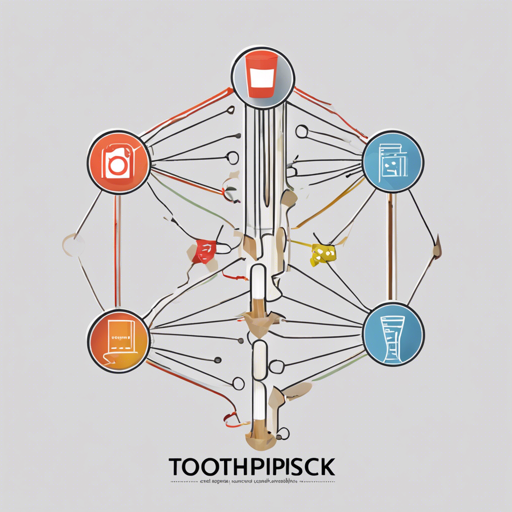Toothpick is an elegant scope tree-based Dependency Injection (DI) library for Java. It alleviates memory management woes while enabling quick and efficient dependency injection, all without the overhead of reflection. In this article, we’ll cover what Toothpick offers, how to set it up on different platforms, and troubleshooting tips to ensure a smooth experience.
What Toothpick Offers
Toothpick shines in its ability to compartmentalize memory during an application’s runtime, effectively preventing memory leaks. Here’s an analogy to help explain the concept:
- Imagine a hotel where different members of a family occupy separate rooms. If one room is checked out, all the belongings in that room (dependencies) can easily be cleared out with no effect on the others. This is similar to how Toothpick’s scopes operate.
When a scope closes, any dependencies within that scope are fully garbage collected, streamlining memory usage for your application. In addition to its primary function, here are other features Toothpick boasts:
- Pure Java with Android and Kotlin support.
- Fast performance achieved through annotation processing rather than reflection.
- Incremental annotation processing (isolating) to enhance development speed.
- Robust testing capabilities for easier unit testing.
- Open-source and thoroughly documented.
Setting Up Toothpick
Ready to install Toothpick? The setup is simple and varies depending on your platform:
For Android:
buildscript {
repositories {
google()
jcenter()
}
dependencies {
classpath 'com.android.tools.build:gradle:3.4.x'
...
}
}
dependencies {
implementation 'com.github.stephanenicolas.toothpick:toothpick-runtime:3.x'
implementation 'com.github.stephanenicolas.toothpick:smoothie-androidx:3.x'
annotationProcessor 'com.github.stephanenicolas.toothpick:toothpick-compiler:3.x' // highly recommended
testImplementation 'com.github.stephanenicolas.toothpick:toothpick-testing-junit5:3.x'
testImplementation 'mockito' // or 'easymock'
}
For Kotlin:
dependencies {
implementation 'com.github.stephanenicolas.toothpick:ktp:3.x'
kapt 'com.github.stephanenicolas.toothpick:toothpick-compiler:3.x' // highly recommended
testImplementation 'com.github.stephanenicolas.toothpick:toothpick-testing-junit5:3.x'
testImplementation 'mockito' // or 'easymock'
}
For Java (using Maven):
com.github.stephanenicolas.toothpick
toothpick-compiler
3.x
compile
com.github.stephanenicolas.toothpick
toothpick-runtime
3.x
compile
com.github.stephanenicolas.toothpick
toothpick-testing
3.x
test
easymock // or mockito
Troubleshooting
While setting up Toothpick, you may encounter some common issues. Here are some troubleshooting ideas:
- Missing Dependencies: Ensure that all dependencies are correctly specified in your build file. Double-check the versions as well.
- Annotation Processing Errors: If you’re having issues with annotation processing, verify the installation of annotation processor plugins in your IDE settings.
- Scope Resolution Issues: When dealing with scope, consider reviewing the closure of your scopes, ensuring they are properly managed within the component lifecycle.
For more insights, updates, or to collaborate on AI development projects, stay connected with fxis.ai.
Conclusion
Toothpick offers a robust solution to dependency injection within Java applications, particularly beneficial for Android developers. Its clean setup and memory management help maintain application efficiency and reliability. At fxis.ai, we believe that such advancements are crucial for the future of AI, as they enable more comprehensive and effective solutions. Our team is continually exploring new methodologies to push the envelope in artificial intelligence, ensuring that our clients benefit from the latest technological innovations.

